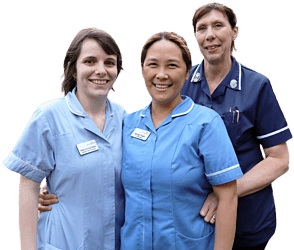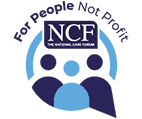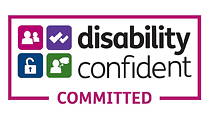There has never been a more unprecedented time for the UK’s care sector. We are living and working through challenging circumstances and our team is committed to providing the best quality of care to all residents. To support them, their families and staff during this period of uncertainty with coronavirus COVID-19, we have put in place a number of measures.
We understand this is a worrying time for individuals and friends and families coming into health and care services and we want to reassure you that we are doing everything we can to ensure that residents and staff are as safe as possible.
Our primary concern is the safety and well-being of our residents and the genuinely remarkable staff who have kept them safe over recent months.
We hope the following information will provide answers to some of the questions which you might have at this difficult time.
If you have additional, more specific questions please contact COVID_19Comms@coveragecareservices.co.uk and we will answer your question directly and also add to the below Q&As if we think it may be relevant to others.
Have staff and residents received their vaccination?
Our homes have been undergoing a vigorous vaccination programme over recent weeks with most staff and residents at all homes now having received protection from the virus, which is very good news.
We are pleased with the number of staff and residents taking up the vaccine with 92 per cent of both residents and staff across all homes having now been vaccinated.
Even though most staff have been vaccinated, they continue to always wear appropriate PPE and a stringent testing programme remains in place. Staff are tested twice a week using Lateral Flow Tests and once a week they receive a Polymerase Chain Reaction test (PCR). Residents also undergo testing every 28 days in line with care sector guidance.
Although vaccination is not compulsory, we have moved to impose a duty on any new staff joining our organisation and all new recruits in a client facing (home-based) role are now expected to have proof of vaccination or commit to having a vaccination before starting work with us. Exemptions will be made for individuals who are unable to receive the vaccination due to clear medical reasons.
Can I visit a loved one staying in one of your homes?
From March 8, our homes began receiving visitors again with due consideration of the new Government guidance.
Currently, and in line with the new guidance, all visits to our homes are being limited to designated visitors per person and visits must be booked in advance with the relevant home.
All those entering our homes will be asked to sign our newly revised visitors' agreement and we will be taking people’s temperature. There is also a requirement for all visitors to wear the appropriate PPE which will be supplied by the home.
We will not require proof of vaccination for a visit to take place.
Close contact visits with residents will require visitors to undergo an LFD test either at home or a local test centre, two hours prior to their appointment, or on site at one of our homes.
LFD testing is available at homes between the hours of 9.30am and 4pm each day. Otherwise a visitor can be tested at a local test centre or test themselves, in these cases we require proof of a negative test result. After 4pm or if the visitor is unable to access a test independently, all visits will take place behind a screen for which testing is not required.
All visitors must return a negative test result and be able to evidence this before any visit is allowed to proceed.
As always, we continue to support families who wish to be with their relatives during end-of-life care, or in other exceptional circumstances, by implementing additional infection control measures.
What is an essential care giver and will my relative be able to have one?
New guidance issued by the Government has highlighted that in ‘exceptional circumstances’ care homes can support residents and their families with identifying an essential care giver. This person might be someone that is able to provide specific physical or emotional support to a resident. For example, a resident’s refusal to eat unless they are in the company of a partner or loved one may present a real risk of physical deterioration. This support will be part of the formal care plan agreed with the resident and loved one.
In such circumstances, the essential care giver, is deemed to play a central role in delivering care and support alongside professional carers and as such guidance allows for these people to spend more time in the home and have closer contact with the person they are supporting. At Coverage Care we will be working closely with residents and their families to help identify where there may be a need for an essential care giver role, particularly when it comes to residents who are new to the home. We believe this will help the settling-in process for residents who have very specific needs. We hope it will also reduce some of the anxiety felt by family members as they help transition their loved one into a new care environment.
It is likely that those people identified as an essential care giver will be spending more time in our homes and will also have closer contact with residents therefore, we will be asking them to take further steps to reduce the risk of infection to themselves, other residents and staff. This will include taking a rapid Lateral Flow Test before each visit to a home, a weekly PCR test and agree to more regular testing if necessary.
Can I take my relative or friend out of a home for a walk or other short trip?
The Government has now given the go-ahead for care home residents to be able to go on low-risk trips, either to visit a friend or family member’s garden, or go on walks in places such as parks, public gardens and beaches.
For many of our more mobile and active residents, this moment has been a long-time coming, and we are all keen to start encouraging such trips.
However, as always, we do have to manage the practicalities of these trips and there is a need to have measures in place to protect residents, staff and family members from any increased risk of infection.
In line with Government guidance, residents leaving our homes will not be required to self-isolate on their return but, we will be asking all residents and those accompanying them to adhere to the safety guidelines in relation to regular hand-washing, social distancing and remaining outside.
We would ask that any trips are booked with relevant homes in advance so that staff can prepare residents for their day-out.
Residents leaving a home must be accompanied by either a care worker or their nominated visitor and visits must take place outside, except for the use of toilet facilities.
All residents will be tested before leaving the home and all those directly involved in the trip will also have to be tested and of course, everyone will need to have returned a negative result for the trip to go ahead safely.
What is a ‘designated’ visitor?
The idea of a ‘designated’ or ‘constant’ visitor is to have the same named person able to make visits to a home resident.
At the moment the government guidance and public health authorities are requiring a designated or constant visitor approach for visits to a home and outward visits.
What is your approach to Test and Trace?
We are obliged to ask for contact details of all visitors to our home, this is to assist the NHS Test and Trace service for tracing close recent contacts of anyone testing positive for coronavirus. It will be given to NHS Test and Trace on request in the event that it is required for contact tracing purposes. It will not be used for any other purpose, and will be destroyed after 28 days.
Regrettably we will not be able to allow visitation without the above consent.
How will you protect care home residents against the risk of asymptomatic infected visitors bringing the disease into the home?
We are using thermal imaging cameras, a health questionnaire and visitors will be asked to wear a mask. Regular cleaning of designated visitor spaces will also take place.
Are you sure that the thermal imaging cameras will not provide a false sense of security to visitors and staff, given that they cannot detect all infections?
The cameras are only one measure which we are using and they will enable us to monitor visitor temperatures in a much less invasive way.
How will you ensure that visitors and residents observe social distancing during visits? Will visits be supervised?
We expect visitors to sign an agreement which confirms that they will act responsibly in the best interests of safety for residents and staff. We do not expect to observe visits. Visits will be terminated if individuals do not conform to the agreement.
Will visitors be asked to wear masks to reduce the chance of transmission of the virus to staff and residents?
Yes, this forms one of the conditions listed in the visitor agreement.
Will the visiting space be disinfected after each appointment?
Yes.
The Government rules about indoor visits of friends and family in different households appear to be changing, how do we all keep pace with the changes?
We keep guidance under close and regular review. We are decisive in our interpretation of this guidance and always write (email) regular visitors (and other family members known to us) giving notice of proposed changes. The only exception being if there is an outbreak in a home. In such circumstances, we have to immediately suspend visits but we will telephone people with a visit booked to inform them.
If my relative is receiving end of life care in a home can I still visit?
Yes without hesitation, we have recognised this is essential from the very beginning of the pandemic. The number of visitors at any one time may need to be limited in order to keep the visitor, other residents and staff safe but extended visits will be available during the day and night.
Are you still allowing health care professionals to visit homes?
We have always welcomed essential access for health care professionals and urgent suppliers. These visits are strictly monitored and controlled.
Are you still admitting residents to homes?
We have admitted new residents throughout the pandemic. These admissions have been carefully controlled and are subject to government direction. As you would expect each admission follows careful assessment of needs by applying additional screening to our normal thorough admission assessment. This includes a test for COVID-19 indicating that the person is no longer positive and/or is asymptomatic. Following guidance, anyone being newly admitted to a home will be routinely tested and supported. They will asked to stay in their own room for 14 days as a precautionary measure. Family members will be encouraged to assist during the settling in period by use of the “essential care giver” status.
For further information on our new admissions procedures visit the ‘New Residents’ section on our website.
What if my relative needs additional medical help?
Coverage Care Services continues to have access to a full range of medical services when necessary as well as additional health and social care support from its partner agencies.
What will happen if my relative or loved one starts to show symptoms associated with COVID-19?
Over recent months all staff and residents have been asked to take a regular test (residents once evert 28 days / staff three times a week). This is to “capture” early onset and asymptomatic presentation of the virus. If anyone presents with symptoms, in line with Government guidance, a test will be arranged and the resident will be supported in their own room for the recommended period. As next of kin we will naturally keep you informed of any change in health.
Will my relative be tested for COVID-19?
All residents are being tested every 28 days in line with care sector guidance. More frequent testing will be carried if a resident displays symptoms; if they should come into contact with someone who has been confirmed to have the virus or if there is a confirmed outbreak within the home.
If my relative tests positive for COVID-19 how will he/she be cared for?
We do not assume all illness is COVID-related and advocate for residents to be treated for infections and other illnesses proactively. If, however, residents test positive they will be supported in their rooms for 14 days. Residents are monitored closely, and their temperatures are taken twice a day. Acute care plans are introduced to monitor fluid/food intake and repositioning charts are completed to reduce the likelihood of pressure areas. Support is given to maintain mobility and muscle mass whilst in their rooms/units. Wherever possible rooms being used for self-isolation are en-suite and all will have a TV and or radio available to provide background company if required.
Do staff have access to appropriate Personal Protective Equipment (PPE) equipment?
Yes, we are proud of the fact that throughout the pandemic we have been able to provide all staff with the PPE indicated by Public Health England guidance and we are confident this will continue to be the case. We are aware that some have struggled to meet this standard but this is not the case at Coverage Care.
Are staff being tested for COVID-19?
Yes, staff are being tested three times a week, twice using a Lateral Flow Test (LFT) and once by undergoing a Polymerase Chain Reaction test (PCR).
Any member of staff who suspects they have symptoms associated with COVID-19 will self-isolate for the recommended period of time. If staff test positive then our policy is that they are able to return to work after 14 days or 7 days after the last sign of symptoms. This period of absence is fully paid.
Will Coverage Care be providing recovery beds for COVID-19 patients who are discharged from hospital?
Any person who has tested positive and/or displaying acute symptoms associated with COVID-19 will not be admitted to any home run by Coverage Care Services. We expect people who have previously tested positive to be re-tested and to be asymptomatic prior to an admission being agreed. Requests may be assessed on an individual basis and if convalescent patients were to be accepted, they would be subject to strict isolation controls referred to above.
What action is being taken to slow the spread of the virus in your care homes?
We are adhering to strict protocols to protect residents and staff throughout all of our homes, based on Public Health England’s guidance, Government policy and our own experience. Measures in place include:
- Visitors and health care staff to follow visitor protocols in homes
- Health screening questions on admission to a home
- Automatic 14 day isolation period for residents admitted into the home or following an appointment at hospital
- Residents will only be admitted from hospital after receiving a negative COVID -19 test result
- Staff do not wear their uniforms to or from work including footwear
- PPE guidance relevant at the time is followed (we have maintained supplies of PPE throughout)
- Infection Prevention and Control training is in place
- Hand washing guidance is adhered to and reinforced by posters
- Staff are trained how to safely put on and take off PPE
- We keep staff working on one unit (cohort) for their shift to limit the likelihood of transmitting the virus
- Cleaning regimes have increased and “deep cleaning protocols” are the norm
What are the arrangements for keeping relatives informed about what is happening in homes? The Health Secretary said in the briefing all homes should be open and transparent.
At Coverage Care, we believe we have been and continue to be open and transparent about the situation in our homes. We communicate on a regular basis with all relatives and do our best to enable residents to maintain positive communications with their family members. We are only too pleased to respond to individual queries and we routinely reproduce any questions asked (anonymously) in these pages.
- We send regular family letters via email updating everyone on what is happening in Coverage Care during the COVID- 19 pandemic
- We post regular updates on our website
- We purchased additional laptops to facilitate Skype calls between residents and their families. Feedback from relatives about this has been very positive.
- Individual homes make contact with relatives if a resident’s condition changes and reporting schedule is agreed to make sure relatives are kept up to speed on their family member’s health
- We have actively increased our social media engagement to make sure family members can view all the positive things taking place within our homes.
- Our excellent advisors have recently developed a social media “wall” and we would very much encourage you to view this so you can keep up to date with home activities. We would also encourage you to contribute your comments by posting on our social media platforms.
How can I/my friend/relative manage during the period of “self-isolation”?
We have continued to accept new residents into our homes throughout the pandemic. These have been carefully controlled and as you would expect, each admission follows careful assessment and screening for Covid-19.
Following care sector guidance, anyone being newly admitted to a home is asked to ‘isolate’ for 14 days as a precautionary measure.
Within our homes, we prefer to use the term ‘assisted access’ rather than isolation when it comes to describing the process involved when someone becomes a new resident within our homes.
This means staff are on hand to support new residents from day one, providing tailored support and care to individuals while in their rooms.
There is increased input from carers, cleaners and activity staff during the 14-day period so that new residents can adapt and transition to their new home comfortably with all their needs being taken care of.
Residents are still encouraged to go on accompanied walks around the gardens so they can maintain a healthy level of physical activity and staff will also encourage residents to go on socially distanced supported walks around the home.
Family members/friends are encouraged to participate during the settling in (14 day) period by use of the “essential care giver” role where upon they can maintain daily face to face contact with their loved one.
Once the 14-day isolation period comes to an end, home managers have plans in place to make sure all new residents become fully integrated into home life.
What if I have further concerns?
Please do not keep your concerns to yourself, please share them with us and we will be pleased to respond. Either contact the home where your relative or friend lives or, if you are considering a placement please do not hesitate to contact us via email at: COVID_19Comms@coveragecareservices.co.uk









